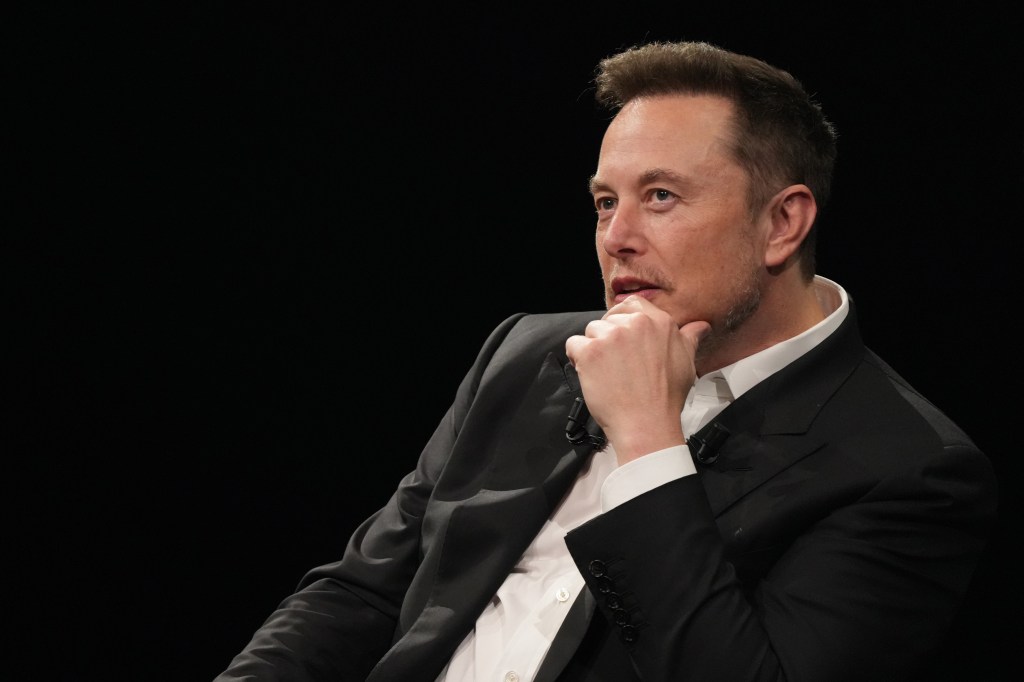Elon Musk’s AI startup, xAI, is creating its own version of ChatGPT.
That appears to be the case, at least, from Musk’s tweets on X late Friday evening teasing the AI system xAI has been quietly developing. Called Grok — a name xAI trademarked recently — the system answers questions conversationally, possibly drawing on a knowledge base similar to that used to train ChatGPT and other comparable text-generating systems (e.g. Meta’s Llama 2).
Grok leverages “real-time access” to info on X, Musk said. And, like ChatGPT, the system has internet browsing capabilities, enabling it to search the web for up-to-date information about specific topics.
Well, most topics.
Grok has real-time access to info via the 𝕏 platform, which is a massive advantage over other models.
It’s also based & loves sarcasm. I have no idea who could have guided it this way 🤷♂️ 🤣 pic.twitter.com/e5OwuGvZ3Z
— Elon Musk (@elonmusk) November 4, 2023
Musk implied Grok will refuse to answer certain queries of a more sensitive nature, like “Tell me how to make cocaine, step by step.” Judging by a screenshot, the system answers that particular question a bit more wryly than ChatGPT; it’s not clear if it’s a canned answer or if the system is, in fact — as Musk asserts in a tweet — “designed to have a little more humor in its responses.”
xAI’s Grok system is designed to have a little humor in its responses pic.twitter.com/WqXxlwI6ef
— Elon Musk (@elonmusk) November 4, 2023
Early Friday, Musk said that xAI would release its first AI system — presumably Grok — to a “select group” on Saturday, November 4. But in a follow-up tweet tonight, Musk said all subscribers to X’s recently launched Premium Plus plan, which costs $16 per month for ad-free access to X, will get access to Grok “once it’s out of early beta.”
Separately, xAI is offering a “limited number” of users in the U.S. access to Grok. There’s a waitlist here.
As soon as it’s out of early beta, xAI’s Grok system will be available to all X Premium+ subscribers
— Elon Musk (@elonmusk) November 4, 2023
Little’s known about Grok so far — or xAI’s broader research projects, for that matter.
In September, Oracle co-founder Larry Ellison, a self-described close friend of Musk, said that xAI had signed a contract to train its AI models on Oracle’s cloud. But xAI itself hasn’t revealed anything about those AI models’ inner workings — or, indeed, what sorts of tasks they can accomplish.
Or rather, it hadn’t until early Sunday, when xAI published a blog post detailing Grok — including the approaches taken to train it and the system’s underlying infrastructure.
According to the post, the large language model driving Grok, Grok-1, was developed over the course of several months on a cluster of “tens of thousands” of GPUs (perhaps supplied by Oracle). Training data came from both the web (up to Q3 2023) and feedback from human assistants that xAI refers to as “AI tutors.”
Grok-1 demonstrates “strong results” on common LLM benchmark tests, xAI claims — “surpassing all other models in its compute class.” And — as Musk alluded to — it has “a bit of wit” and “a rebellious streak,” answering “spicy questions that are rejected by most other AI systems” (although the jury’s out on what’s meant by “spicy,” exactly).
“In some important respects, it (xAI’s new model) is the best that currently exists,” Musk was quoted as saying in a tweet Friday afternoon.
Musk announced the launch of xAI in July with the ambitious goal of building AI to “understand the true nature of the universe.” The company, led by Musk and veterans of DeepMind, OpenAI, Google Research, Microsoft Research, Tesla and the University of Toronto, is advised by Dan Hendrycks, the director at the Center for AI Safety, an AI research nonprofit, and collaborates with X and other companies in Musk’s stead, including Tesla.
In an interview with Tucker Carlson in April, Musk said that he wanted to build what he referred to as a “maximum-truth-seeking AI.” Is Grok this AI? Maybe — or it’s a step toward something even bigger.
In the blog post, xAI hints at how its Grok-1 model might evolve down the line:
“Grok doesn’t have other senses, such as vision and audio,” the company writes. “To better assist users, we will equip Grok with these different senses that can enable broader applications, including real-time interactions and assistance.”
Musk’s AI ambitions have grown since the billionaire’s split with ChatGPT developer OpenAI co-founders Sam Altman and Ilya Sutskever several years ago. As OpenAI’s focus shifted from open source research to primarily commercial projects, Musk grew disillusioned — and competitive — with the company on whose board he sat. Musk resigned from the OpenAI board in 2018, more recently cutting off the company’s access to X data after arguing that OpenAI wasn’t paying enough for the privilege.
Updated with additional information about LLM model powering Grok, Grok-1.































Comment